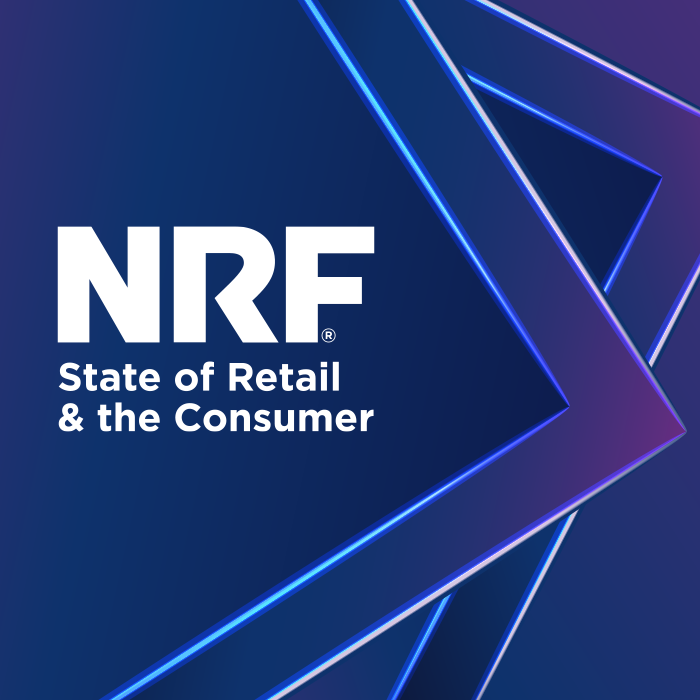Small businesses struggle in the wake of new tariffs
)
From left: ASM Games founder and CEO Alfred Mai joins Stephenson's of Elkhart owner Danny Reynolds, Sarah Wells Bags owner Sarah Wells, Confidence by GaBBY Goodwin founder Rozalynn Goodwin, and Klem's president and CEO Jessica Bettencourt at NRF's Retail Innovation & Impact Conference.
Take action
Contact your representative today and encourage them to collaborate with the White House to scale back these tariffs. Request their support for clear, consistent trade policy that puts American small businesses first — not last. Tell them what these tariffs mean for your job, your store and your community.
President Donald Trump's first 100 days saw the unveiling of a bold trade policy, with his “Liberation Day” announcement on April 2 bringing an unprecedented set of new tariffs. Using emergency powers, the president immediately imposed a 10% tariff on all global imports and even higher rates on goods from approximately 60 countries.
NRF recently brought together small business owners to share their experiences and outline the tangible impacts the tariffs are already having on their businesses. While the administration has touted these measures as a way to level the playing field, the reality for American small businesses paints a starkly different picture.
Navigating a sea of uncertainty
Jessica Bettencourt, a third-generation owner of local hardware store Klem's in Spencer, Mass., highlighted the sheer complexity of the situation: "With more than 70,000 products, it's really hard for us to gauge each individual tariff and how it will affect those items."
She described a barrage of vendor emails announcing sudden tariff charges, making it impossible to plan for the crucial fourth quarter. "Honestly, we just don't really know what to do," she said.
Rozalynn Goodwin, co-founder of Confidence by GaBBY Goodwin in Columbia, S.C., with her daughter, has tried to find an American manufacturer for her barrettes and hair accessories line for nearly a decade. "Every manufacturer in the United States we've spoken to has told us, ‘You need to continue making this in China. It's going to cost you three to four times more to make it here in the United States.’”
The mother-daughter team was recently approached by a major retailer with a deal to sell their products in over 800 stores. But once the new tariffs went into effect, the business deal stalled. “There was a great pause with this great development and opportunity for us, just because of the tariffs,” Goodwin said.
The ripple effect
Alfred Mai, founder and CEO of ASM Games in San Francisco, described the mounting pressure small businesses are facing. "Over the last eight years that I've run this business, we've never raised our prices once. Even during COVID, when container prices were out of control and inflation and fulfillment costs were skyrocketing, we just ate into our margins.”
With the current environment, he said, “We don't really have any more margins to give. And so, for the very first time, we might have to raise prices."
Stephenson’s of Elkhart has been a Main Street staple for customers in Elkhart, Ind. for nearly a century. While owner Danny Reynolds says he agrees with the president’s goal to negotiate better trade deals, small businesses stand in the tariff’s wake.
"As businesspeople, we like to be able to make our own decisions, negotiate our own end games,” he said. “This is something that's essentially taken completely out of our control. That's why it's a very difficult thing to navigate."
Sarah Wells said there was immediate financial burden for her Alexandria, Va.-based ecommerce business. "As a U.S. small business, I pay the whole thing to customs before my goods are released to me,” she said, “before they ever get to my warehouse, whether or not they ever sell.”
With the tariffs come unexpected costs just to maintain business operations. “I just brought in a new shipment and I had to come up with $15,000 of extra cash to release my goods,” Wells said.
And the impacts go even further than the obvious financial ones. “This is also really a lot more than just about the cost of my goods,” she said. “For my small business, it has halted hiring, innovation and growth."





